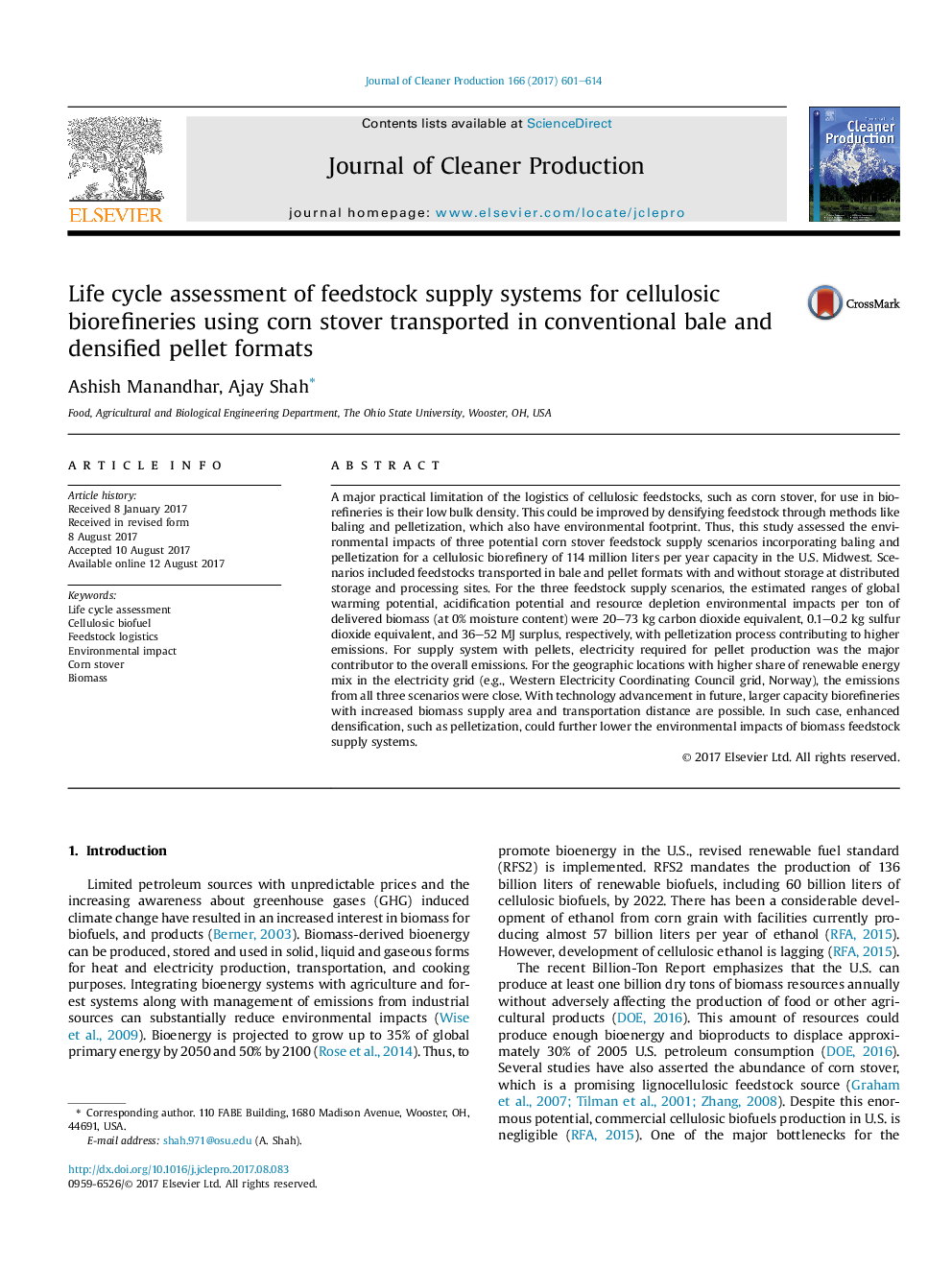| کد مقاله | کد نشریه | سال انتشار | مقاله انگلیسی | نسخه تمام متن |
|---|---|---|---|---|
| 5479934 | 1522088 | 2017 | 14 صفحه PDF | دانلود رایگان |
عنوان انگلیسی مقاله ISI
Life cycle assessment of feedstock supply systems for cellulosic biorefineries using corn stover transported in conventional bale and densified pellet formats
ترجمه فارسی عنوان
ارزیابی چرخه حیات سیستم های تهیه مواد اولیه برای کارخانه های زراعی سلولز با استفاده از ذرت که در قالب های پلت فرم معمولی و پلاستیکی حمل می شود
دانلود مقاله + سفارش ترجمه
دانلود مقاله ISI انگلیسی
رایگان برای ایرانیان
کلمات کلیدی
ارزیابی چرخه حیات، سوخت زیستی سلولز، لجستیک مواد اولیه، اثرات زیست محیطی، ذرت ذرت، زیست توده،
موضوعات مرتبط
مهندسی و علوم پایه
مهندسی انرژی
انرژی های تجدید پذیر، توسعه پایدار و محیط زیست
چکیده انگلیسی
A major practical limitation of the logistics of cellulosic feedstocks, such as corn stover, for use in biorefineries is their low bulk density. This could be improved by densifying feedstock through methods like baling and pelletization, which also have environmental footprint. Thus, this study assessed the environmental impacts of three potential corn stover feedstock supply scenarios incorporating baling and pelletization for a cellulosic biorefinery of 114 million liters per year capacity in the U.S. Midwest. Scenarios included feedstocks transported in bale and pellet formats with and without storage at distributed storage and processing sites. For the three feedstock supply scenarios, the estimated ranges of global warming potential, acidification potential and resource depletion environmental impacts per ton of delivered biomass (at 0% moisture content) were 20-73Â kg carbon dioxide equivalent, 0.1-0.2Â kg sulfur dioxide equivalent, and 36-52Â MJ surplus, respectively, with pelletization process contributing to higher emissions. For supply system with pellets, electricity required for pellet production was the major contributor to the overall emissions. For the geographic locations with higher share of renewable energy mix in the electricity grid (e.g., Western Electricity Coordinating Council grid, Norway), the emissions from all three scenarios were close. With technology advancement in future, larger capacity biorefineries with increased biomass supply area and transportation distance are possible. In such case, enhanced densification, such as pelletization, could further lower the environmental impacts of biomass feedstock supply systems.
ناشر
Database: Elsevier - ScienceDirect (ساینس دایرکت)
Journal: Journal of Cleaner Production - Volume 166, 10 November 2017, Pages 601-614
Journal: Journal of Cleaner Production - Volume 166, 10 November 2017, Pages 601-614
نویسندگان
Ashish Manandhar, Ajay Shah,
